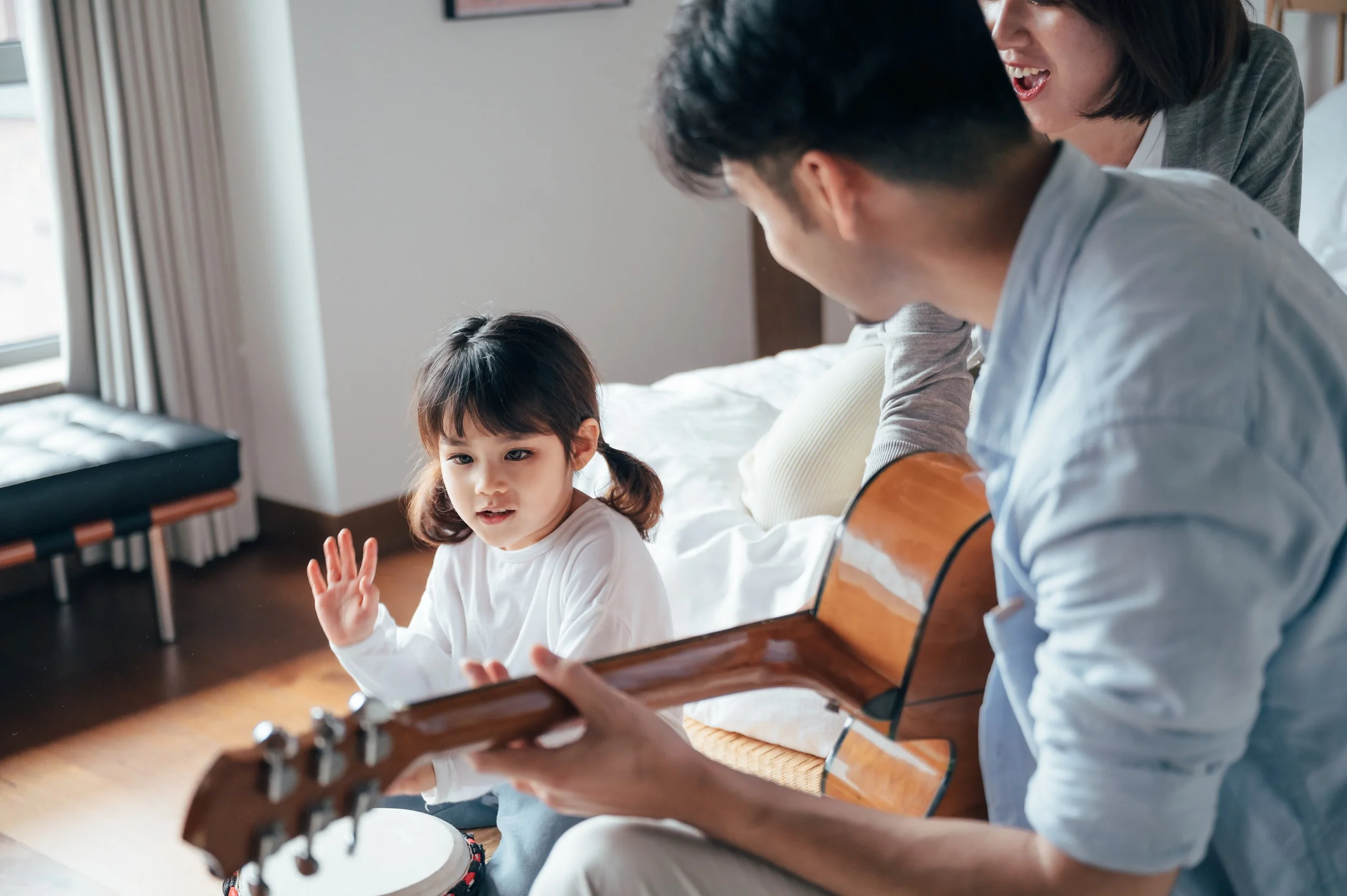Why is music important for child development?
One phrase new parents hear time and time again is that “music is very beneficial to young children.” Or “You should enroll in music lessons today; your child is the perfect age!” But is there any truth to these statements?
The world is moving faster than ever in the current technological boom of endless Web 3 and AI developments. While most children didn’t receive phones until high school in the 2000s and 2010s, many today's parents resort to YouTube or TikTok for childhood entertainment. This appears as an easy way for parents to free up their time, but many studies over the past decade have come to a similar conclusion that the use of social media during developmental stages has detrimental effects on not only “neural patterns, [but also] in social patterns.” (Esposito) Along with further risks to the child’s critical thinking.
Children ages 5-12 need to participate in hobbies or activities that develop essential social functions, such as collaboration, empathy, problem-solving, and a love of learning. While a strong Montessori education has been proven to hone this set of skills, here’s what parents can do if their child has not been accepted into the program or wishes to get their child to the head of the pack.
Community sports programs that encourage “risky play” - such as climbing, exploring, and rough-and-tumble play - have been proven to benefit your child’s physical literacy, resilience, and problem-solving skills. These further encourage teamwork and social participation. However, these activities may prove to be a great hurdle for children who are less outdoorsy and more introverted.
A great alternative is partaking in music and arts. At a young age, playing music and drawing has been shown to enhance cognitive development, develop social-emotional growth, and benefit academic performance. Whether or not your child chooses a future in the arts, these develop a strong skillset that they will look back upon fondly.
Additionally, many politicians and businessmen, such as Warren Buffet, Bill Clinton, and Justin Trudeau, have famously engaged deeply with music education as children.
At Ars Madrigal Academy, we focus on the joy of learning as well as the very skill of learning. We gently guide them towards big milestones, such as learning their first song, making their first performance, or winning their first competition.
Additionally, music skills are life skills. The motor skills they pick up at a young age translate to finesse with a scalpel. Sightreading becomes the ability to process complex information quickly. And daily practice evolves into time management. The list goes on… Music can take you far and wide, but only if you allow it.
It’s important to be very patient with the learning journey, as every child is different. Progress may be slow and gradual or quick and sudden, but at the end of the day, the lifelong benefits of music education—ranging from enhanced cognitive abilities and improved social skills to increased confidence and emotional resilience—are invaluable. Investing in music lessons is not just about learning an instrument; it's about equipping your child with essential skills that will help them succeed in all areas of life. Embrace the process, and watch your child flourish both musically and personally.


